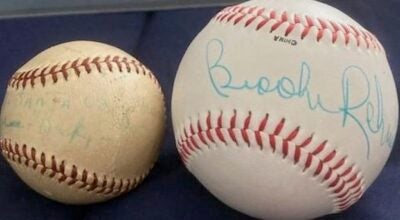We are all “other”
Published 6:13 pm Friday, November 30, 2018
My other half, my wife, said after reading my last column on “other” that I forgot the “other” …. half.
My last column was on the notion of “other” where I wrote about all the social and cultural categories that permeate our notions of identity.
But Allison was right. When talking about other, I forgot or perhaps subconsciously, as a male, left out gender as one of the categories of “other.”
“I find it telling,” she chided me, “that one of the most ‘woke’ men I know, and an anthropologist, could overlook gender as ‘other.’” She went on, “Call it what you want — bias, privilege, even male blindness — females are treated differently in so many arenas: the military, work, playground, school, the list goes on.”
I had to admit then and in follow-up conversations we had over the next week about my omission, with one long-ranging discussion in a coffee shop. Allison has worked with military sexual assault, and Pamlico Rose, the nonprofit I lead, will soon open a center that will help female veterans reintegrate, so it isn’t like our lives are not attuned to the plight of females in male-centric environments.
I tried only half-heartedly to counter the intent of what she had said, admitting we all have biases that are hidden to us.
“I don’t think I have male privilege syndrome,” I said.
I defended myself, stating categorically my list of reasons: I grew up with a strong mother and three independent, successful sisters; I have more female colleagues than male; I am working in an area to support women; I love to watch women’s basketball (Allison is a former professional player and college coach, and I do love the women’s game); I even went to the Women’s March. And for a clincher, I offered what I thought was the most compelling argument for my “woke guy” status: “You married me.”
“Not a bad resume,” she replied, “Indeed, you have a lot of things going for you that would work to mitigate male privilege tendencies, especially the last reason.”
“But, in some ways, you are mixing apples and oranges,” she continued. “Your column was on ‘other,’ and you, as a good anthropologist, were identifying difference as an objective means to cast your argument. You listed many differences that led to ‘othering.’ However, something in you kept you from listing gender as difference, because trust me, women have been on the bad end of ‘other’ throughout our lives. That was the point I was making, not that you have the male privilege syndrome, but your bias is still there, and it is a bias of perspective.”
It was an ‘aha’ moment spread out over a week, culminating in a profound exchange over a cup of coffee. How we see the other is a matter of perspective, and it is, even for an anthropologist, based on difference with me, or my gender, even if I think I have been aware of the influence being a male brings.
The moral of this story is that no matter how much you engage with those who are different and try to make an impact, bias lingers. I never thought of Allison or my sisters as “other,” but then again, I don’t have to worry about going out alone, making 70 cents to the male’s dollar or dealing with daily instances of harassment.
I never thought of me as other.
Robert Greene Sands is an anthropologist and CEO of the non-profit Pamlico Rose Institute for Sustainable Communities located in Washington.





